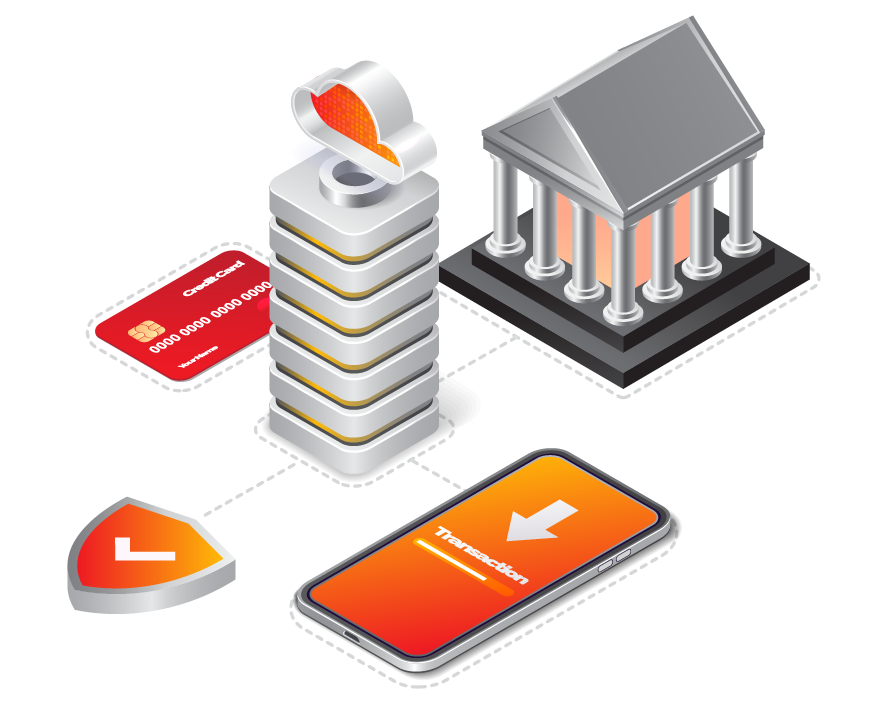In the realm of finance, innovation has always found a home, and the introduction of Artificial Intelligence (AI) is bringing about an unprecedented revolution. Within the dynamic landscape of financial technology, AI is proving to be a transformative force, reshaping the way we handle, invest in, and engage with our financial matters. The integration of AI into FinTech has created a synergistic relationship that not only optimizes conventional financial procedures but also introduces cutting-edge capabilities that were previously relegated to the realm of science fiction. Explore the 5 key ways AI is transforming the FinTech industry, ranging from the automation of financial operations to the reimagining of customer experiences.
How AI Impacts the Fintech Industry
In various dimensions, Artificial Intelligence (AI) is reshaping the financial industry landscape. Its multifaceted role plays a crucial part in determining the future of financial services. In this exploration, we delve into the intricate ways AI is revolutionizing FinTech, organized into three pivotal roles.
Operational Efficiency
AI enhances operational efficiency in fintech by automating repetitive tasks, streamlining processes, and improving decision-making. It automates data analysis for quick risk assessment, fraud detection, and compliance. AI-driven chatbots provide instant customer support, while algorithmic trading optimizes market participation. Credit scoring and underwriting benefit from AI's ability to analyse diverse datasets swiftly, expediting loan approvals.
Data Analytics and Insights
AI revolutionizes data analytics in fintech by swiftly processing vast datasets for predictive insights. Advanced algorithms enhance fraud detection, ensuring secure financial transactions. Customer data analysis enables personalized services, fostering customer loyalty. The best payment gateways in India incorporate AI-driven alternative data integration that refines credit scoring and risk assessment. Operational analytics optimize processes, reducing costs and improving efficiency. Real-time market intelligence aids in identifying trends and opportunities, facilitating agile investment decisions. AI's natural language processing extracts valuable insights from unstructured data, contributing to comprehensive market understanding. Overall, AI transforms data into a strategic asset, empowering fintech firms with agility, innovation, and a competitive edge in the dynamic financial landscape.
Risk Management and Fraud Detection
Rephrase “AI revolutionizes risk management and fraud detection in the fintech landscape. Its advanced algorithms analyse vast datasets in real time identifying anomalies and patterns indicative of fraudulent activities. Machine learning models continuously evolve, adapting to emerging threats and enhancing cybersecurity. Automated risk assessments powered by AI improve decision-making processes, especially in lending and investment. This innovation not only strengthens security measures but also ensures compliance with regulatory standards. The result is a more resilient and trustworthy fintech environment, where AI plays a pivotal role in mitigating risks, reducing financial losses, and safeguarding the integrity of financial transactions.”
Customer Service and Personalization
AI transforms customer service and personalization in the fintech landscape. Chatbots and virtual assistants powered by AI in the best payment gateway service provider in India offer 24/7 support, addressing customer queries efficiently. Natural language processing enhances communication, making interactions more intuitive. AI analyses customer data to offer personalized product recommendations, financial advice, and tailored services, improving overall customer experience. This technology streamlines operations, reduces response times, and fosters customer loyalty by delivering personalized solutions. Ultimately, AI in customer service and personalization empowers fintech companies to offer tailored, efficient services, meeting individual needs in a rapidly evolving digital financial landscape.
Algorithmic Trading
AI revolutionizes algorithmic trading in fintech by analysing vast datasets, market trends, and real-time information. Machine learning algorithms make split-second trading decisions, optimizing strategies and adapting to market dynamics. AI's predictive capabilities identify potential opportunities and risks, enhancing portfolio management. Automated execution of trades eliminates emotional biases, ensuring consistency and efficiency. Natural language processing enables AI to interpret news and sentiment, influencing trading decisions. Overall, AI-driven algorithmic trading improves accuracy, speed, and adaptability, providing a competitive edge and reshaping the landscape of financial markets by merging advanced technology with strategic trading.
The infusion of Artificial Intelligence (AI) into the FinTech space has ushered in a transformative era, redefining the landscape of financial services. This technological integration, marked by advanced algorithms and machine learning applications, has not only optimized operational processes but has also significantly impacted the economy. AI-driven innovations in FinTech contribute to increased efficiency, reduced costs, and improved accessibility, fostering a more inclusive financial ecosystem.
FAQ
- Q1. How has AI entered the FinTech space?
AI has entered the FinTech space through the integration of advanced algorithms and machine learning techniques in financial services. Applications include fraud detection, risk assessment, automated trading, and customer service, enhancing efficiency and decision-making processes.
- Q2. What impact does AI have on the Economy in FinTech ?
AI in FinTech positively impacts the economy by improving financial services' accessibility, reducing costs, and enhancing accuracy. Automation of tasks, such as data analysis and customer interactions, leads to increased productivity and innovation, contributing to overall economic growth.
- Q3. How does AI-driven innovation affect traditional financial institutions in the FinTech sector?
AI-driven innovation challenges traditional financial institutions to adapt to new technologies or risk becoming obsolete. FinTech companies leveraging AI can offer more personalized and efficient services, disrupting established norms. This dynamic foster competition, driving traditional institutions to embrace AI to stay competitive and improve their services.


.jpg)